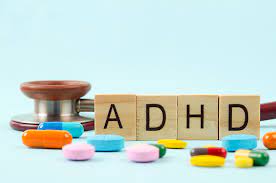The Influence of ADHD Medication on Decision-Making Abilities: Implications for Risk Assessment
The neurodevelopmental disorder known as Attention Deficit Hyperactivity Disorder (ADHD) is typified by impulsivity, hyperactivity, and inattention. The ability to make decisions is one of the many facets of daily living that can be severely impacted by these symptoms. Although medication is frequently recommended to treat ADHD symptoms, concerns have been raised regarding how these drugs affect the way that people with ADHD make decisions and evaluate risks. This article examines how ADHD medications affect a person’s capacity for making decisions and how that affects risk assessment.
Daftar Isi
Recognizing ADHD Decision-Making
The process of choosing between several possibilities based on preferences, values, and possible outcomes is known as decision-making. Impaired executive functions, including working memory and inhibitory control, can exacerbate decision-making challenges in people with ADHD. One of the main symptoms of ADHD is impulsivity, which can cause people to make snap judgments or take risks without thinking through the long-term effects.
Medication for ADHD and Making Decisions
Medication for ADHD, especially stimulant drugs like amphetamines and methylphenidate, targets brain neurotransmitter systems linked to executive functioning, attention, and impulse control. According to research, taking medication for ADHD may lessen its symptoms and improve the cognitive functions related to making decisions.
Decreased Impulsivity:
Stimulant drugs assist people with ADHD in controlling impulsive actions, enabling more careful and deliberate decision-making. Medication can support improved self-regulation and impulse control by enhancing inhibitory control and decreasing impulsive responses.
Enhanced Attention and Focus:
People who take medication have better attention and focus, which helps them process information more efficiently and make decisions. Better cognitive control makes it possible to take into account more pertinent variables and consequences, which results in more well-informed and logical decisions.
Better Executive Functioning:
ADHD medications help with executive functions that are necessary for making good decisions, including organizing, planning, and problem-solving. Medication helps people approach decision-making activities in a more methodical and strategic way by improving certain cognitive processes.
Consequences for Risk Evaluation
Risk assessment in ADHD patients is significantly impacted by the impact of ADHD medication on decision-making skills:
Risk-Taking Behaviors:
ADHD has been linked to a higher inclination towards dangerous behaviors, including drug misuse, careless driving, and unsanitary sexual conduct. Medication can reduce risk-taking by enhancing impulse control and encouraging more thoughtful choices.
Making Financial Decisions:
Because of their impulsivity and lack of preparation, people with ADHD may have trouble handling their money and making wise financial decisions. ADHD medication can improve a person’s ability to balance the advantages and disadvantages of financial decisions, which will enhance their money management abilities.
Making Health-Related Decisions:
Individuals with ADHD may struggle to make health-related decisions, such as following prescription regimens, maintaining healthy eating and exercise routines, and scheduling medical appointments, due to poor impulse control and difficulties evaluating consequences. Medication can help people manage their health behaviors more effectively by improving their executive function and cognitive control.
Obstacles and Things to Think About
While taking an ADHD medication can help with decision-making and reduce risk-taking, there are a number of drawbacks and things to keep in mind:
Individual Variations:
Not everyone will respond to ADHD medication in the same way, and not everyone’s decision-making skills will improve to the same extent. Individual variations in treatment response must be taken into account, and interventions must be customized appropriately.
Comorbidity:
Anxiety, sadness, and substance use disorders are among the mental health illnesses that frequently co-occur with ADHD. This can make it more difficult to make decisions and respond to treatment. To address the underlying causes of decision-making difficulties, a thorough assessment and treatment of comorbid illnesses are required.
Medication Adherence:
Sustaining the therapeutic effects of medication on decision-making skills requires consistent adherence to the drug. Medication adherence might be difficult for ADHD patients because of adverse effect worries, disorganization, and forgetfulness. Medication adherence techniques, such as pill organizers or reminders, may be beneficial.
Encouraging Well-Informed Choice-Making
In addition to medication therapies, behavioral methods and support networks that facilitate well-informed decision-making are also essential for the effective management of ADHD:
Interventions Behavioral:
Behavioral therapies such as cognitive-behavioral therapy (CBT) can assist people with ADHD in acquiring decision-making, impulse control, and problem-solving abilities. These interventions offer doable tactics and coping processes for controlling impulsive behaviors and exercising deliberate judgment.
Environmental Changes:
By minimizing distractions and promoting order and preparation, creating structured surroundings and routines can aid in decision-making. Checklists, reminders, and visual cues can all assist people with ADHD in maintaining attention and direction when making decisions.
Assistance Networks:
Individuals with ADHD who are struggling with decision-making can benefit greatly from the help and direction offered by peer support groups, counseling programs, and family involvement. Through promoting transparent communication and offering emotional assistance, these networks have the potential to enable people to make knowledgeable and accountable decisions.
In summary
Medication for ADHD is essential for enhancing decision-making skills and decreasing risk-taking behaviors in people with ADHD. Medication for ADHD improves executive functioning and cognitive control, which results in more thoughtful and rational decision-making by addressing basic symptoms including impulsivity and inattention.
Medication, however, is only one part of an all-encompassing strategy for managing ADHD. To encourage informed decision-making and reduce the hazards related to ADHD, support networks, environmental changes, and behavioral therapies are crucial.
Through an understanding of how ADHD medication affects decision-making skills and the implementation of comprehensive interventions to address problems, people with ADHD can acquire the necessary skills and techniques to make confident and resilient decisions in life.

